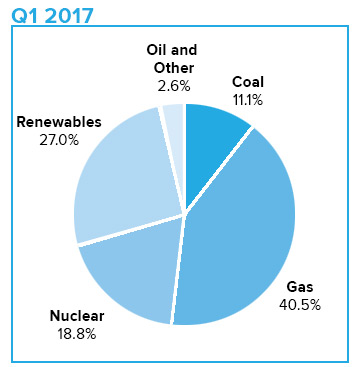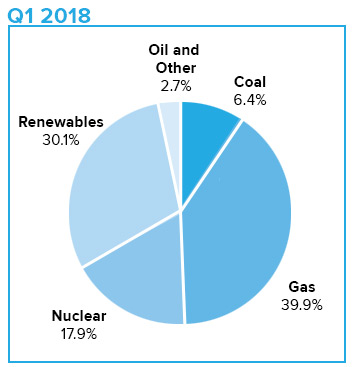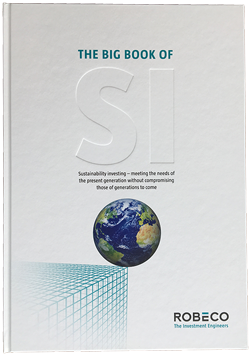A dire performance in a renewable ranking forced the City of London to clean up its act, setting in motion a bold new energy strategy that is inspiring entrepreneurs and reshaping entire industries.
When sustainable practices penetrate the City of London you can be sure it’s a sign that mind sets are shifting in the UK capital. After performing dismally in a survey to identify the cities doing the most to exploit its renewable energy potential (London came last), a coalition of the UK’s leading environmental groups called on the next mayor to commit to a greener capital during their term. After all, with a population of 8.8 million, expected to grow to almost ten million by 2030 [1], London urgently needs sustainable solutions to ensure it not only retains its world city status but remains among the best places on the planet to live and work.
The coalition therefore argued the city as a whole was missing a huge opportunity to be a world leading low carbon city by not taking advantage of renewable energy. Heeding the warning, the City of London Corporation – the local government body that administers the city’s financial district announced in June 2018 that it would run on 100% renewable energy by October – just three months after the statement’s release. Catherine McGuinness, chairman of the City of London Corporation’s policy and resources committee argued that by generating its own electricity and investing in renewables, the City was doing its bit to help meet international and national energy targets.

‘This is a big step for the City Corporation and it demonstrates our commitment to making us a more socially and environmentally responsible business,’ she said. It’s a bold move from an area that has substantial clout. Consider this: The City of London employs 483,000 people according to the most recent Business Register and Employment Survey (2017), that represents 1.6% of the UK’s total employment. [2] Or put simply: 1 in every 63 of the UK’s entire workforce is employed in the City.
Rapid progress is somewhat of an understatement to describe this many people switching to sustainable forms of energy in just ninety days, especially considering that for nearly five decades fossil fuels have commanded a consistent 60-70% share of the power generation mix – not just in London, but globally. However London based energy consultants Bloomberg New Energy Finance (BNEF) believe the near 50-year reign of carbon is coming to an end. A switch to cheap renewable energy and batteries it believes will fundamentally remake electricity systems around the world.

Drop in fossil fuel
Its annual New Energy Outlook (NEO) assesses of the economic drivers and tipping points that will shape the sector globally to 2050 – its predictions for the UK’s electricity system specifically are nothing short of game changing. Over the next three decades it forecasts the UK will have added 158GW of wind and solar, as well as 49GW of batteries to the energy mix. If these estimates are anywhere near correct then renewables are set to provide 83% of UK’s electricity generation by 2050. [3]
The UK government’s Department for Business, Energy & Industrial Strategy has also been crunching the numbers. In its Energy Trends report released in August 2018 it outlined the UK’s current electricity generation mix. By Q1 2018 the renewables share had increased to a record quarterly high of 30.1%, making it the UK’s second largest source of electricity behind gas which stood at 39.9%. [4]When coal and gas were combined, they contributed 49.3% to the UK’s electricity mix, a 2% reduction in fossil fuel usage on the previous year. The drop in fossil fuel share was explained largely by government policies such as levies on coal production making it increasingly uncompetitive, alongside a commitment to closing all of the remaining coal-fired power stations by 2025, a move which BNEF forecasts will reduce the role of fossil fuels in electricity generation to 12% by 2030.

Drop in fossil fuel
Its annual New Energy Outlook (NEO) assesses of the economic drivers and tipping points that will shape the sector globally to 2050 – its predictions for the UK’s electricity system specifically are nothing short of game changing. Over the next three decades it forecasts the UK will have added 158GW of wind and solar, as well as 49GW of batteries to the energy mix. If these estimates are anywhere near correct then renewables are set to provide 83% of UK’s electricity generation by 2050. [3]
The UK government’s Department for Business, Energy & Industrial Strategy has also been crunching the numbers. In its Energy Trends report released in August 2018 it outlined the UK’s current electricity generation mix. By Q1 2018 the renewables share had increased to a record quarterly high of 30.1%, making it the UK’s second largest source of electricity behind gas which stood at 39.9%. [4]When coal and gas were combined, they contributed 49.3% to the UK’s electricity mix, a 2% reduction in fossil fuel usage on the previous year. The drop in fossil fuel share was explained largely by government policies such as levies on coal production making it increasingly uncompetitive, alongside a commitment to closing all of the remaining coal-fired power stations by 2025, a move which BNEF forecasts will reduce the role of fossil fuels in electricity generation to 12% by 2030.
Shares of electricity generation


Wind, sun and batteries
At the same time, investment in high capacity offshore wind and solar infrastructure is well underway with the UK now home to two of the largest wind farms in the world. In September 2018 Walney Extension, a wind farm covering an area equal to 20,000 football pitches, was opened off the coast of Cumbria in the north west of England. It overtakes the current largest operational facility globally, London Array, in the Thames Estuary. The UK’s energy minister, Claire Perry said at Walney’s opening: ‘Record-breaking engineering landmarks like this huge offshore wind farm help us consolidate our global leadership position, break records for generating renewable energy, and create thousands of high quality jobs.’

The UK has seven of the world’s biggest offshore windfarms
Offshore windfarms by capacity, megawatts


Add battery development into the equation and soon wind and solar will be able to run when the wind isn’t blowing and the sun isn’t shining. That’s because renewables plus batteries operating results in what’s called ‘dispatchable power’ which essentially allows electricity to be stored and discharged to meet shifts in demand at any time of day. A further rollout of this powerful partnership is set to encourage deeper renewables penetration, stealing market share from coal, gas and nuclear.
Another big winner from the shift away from carbon is electric cars, however their success depends on a dramatic scale up in the battery supply chain. This of course takes investment to reach critical mass, but if the progress so far is any indication of the future direction of travel, then issues of sustainability are set to play an ever bigger role in decision making process of investors all over the world. Joe Warren, founder and managing director of London based start-up PowerVault is at the forefront of the battery innovation in the UK, watch our mini documentary to see how he and his team are pioneering a renewables revolution and what impact it will have on the country’s energy mix.
Add battery development into the equation and soon wind and solar will be able to run when the wind isn’t blowing and the sun isn’t shining. That’s because renewables plus batteries operating results in what’s called ‘dispatchable power’ which essentially allows electricity to be stored and discharged to meet shifts in demand at any time of day. A further rollout of this powerful partnership is set to encourage deeper renewables penetration, stealing market share from coal, gas and nuclear.
Another big winner from the shift away from carbon is electric cars, however their success depends on a dramatic scale up in the battery supply chain. This of course takes investment to reach critical mass, but if the progress so far is any indication of the future direction of travel, then issues of sustainability are set to play an ever bigger role in decision making process of investors all over the world. Joe Warren, founder and managing director of London based start-up PowerVault is at the forefront of the battery innovation in the UK, watch our mini documentary to see how he and his team are pioneering a renewables revolution and what impact it will have on the country’s energy mix.


